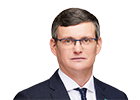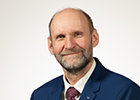Perehüvitiste seaduse ja teiste seaduste muutmise seaduse eelnõu (507 SE) esimene lugemine
Istung: XV Riigikogu, IV istungjärk, täiskogu istung
Kuupäev: 2024-10-14 18:12
Osalevad Poliitikud:
Sõnavõtte kokku: 156
Koosseis: 15
Päevakorra kestus: 2h 37m
AI kokkuvõtted: 156/156 Sõnavõtud (100.0%)
Analysis: Structured Analysis
Poliitikute Kõneaeg
Poliitikud
Analüüs
Kokkuvõte
Esimene päevakorrapunkt käsitleb Vabariigi Valitsuse algatatud perehüvitiste seaduse ja teiste seaduste muutmise seaduse eelnõu 507 esimest lugemist Riigikogus. Ettekandjaks on sotsiaalkaitseminister Signe Riisalo, kes tutvustas muudatusi seoses vanemahüvitise lae alandamise, ülalpeetava abikaasa ravikindlustuse eest maksmise lõpetamise ning tervishoiu ja sotsiaalkaitsevaldkonna muudatustega. Lisaks käsitleti menetlustähtaegade pikenemist ning tervisekassade reserve, mis võimaldavad lisaraha jaotust tervishoiuteenuste parandamiseks. Sotsiaalkaitse ja tervishoiuvaldkonna muudatuste majanduslik mõju ning nende jõustumise ajakava olid samuti olulised teemad.
Teises osas toimus põhjalik arutelu demograafia ja mõjuanalüüside üle: opositsioon rõhutas, et puudub selge vastutus ja autoriteet, kes koostas mõjuanalüüsi ning miks demograafide kaasamine ei ole tehtud; arutelu kaldus suuremate ja väiksemate sotsiaalsete mõjude ning läbipaistvuse nimel. Päev lõppes lõppdokumendi ja järgmiste sammude väljastamisega: esimene lugemine lõpetati ning järgmine ettekandekord ja menetlusteade on ette nähtud 28. oktoobriks.
Tehtud otsused 1
Eelnõu 507 esimene lugemine lõpetatud. Esitatud ettepanek eelnõu esimesel lugemisel tagasi lükata ei saanud; hääletustulemus: poolt 20, vastu 46, erapooletuid 0. Seaduseelnõu menetluse järgmine etapp on esimese lugemise lõpetamine ning lugemise jätkamine teises või järgmises lugemises pärast arutelu vastavalt Riigikogu töökavas ettenähtud korrale.
Aktiivseimkõneleja
Urmas Reinsalu (Isamaa), esitatud kui kõige aktiivsem kõneleja selle päevakorra jooksul. Tema positsioon oli parempoolne (või õiglane, konservatiivne), esindades Isamaad ja juhtivat opositsioonilist hoiakut kõigis küsimustes ning osales mitu korda arutelu suunavate ja järelepärimistega.
Esimees Lauri Hussar
AI kokkuvõte
Tänasel istungil on viis punkti, esimene on Vabariigi Valitsuse algatatud perehüvitiste seaduse ja teiste seaduste muutmise eelnõu 507 esimene lugemine, ning ettekandjana esineb sotsiaalkaitseminister Signe Riisalo.
Sotsiaalkaitseminister Signe Riisalo
AI kokkuvõte
Riigikogu ees esitatud perehüvitiste ja teiste seaduste muutmise eelnõu 507 vähendab vanemahüvitise ülempiiri ning viib lae kolmekordse tasemelt kahekordsele tasemele, lõpetab ülalpeetava abikaasa ravikindlustuse maksmise, laiendab sotsiaalmaksuvabastust ja Tervisekassa kahjujuhtimise õigusi, suurendab visiiditasu, voodipäevatasu ja retseptitasu ning pikendab menetluse tähtaegu, et parandada tervishoiuteenuste kättesaadavust ning vastata riigieelarveprognoosidele aastatel 2025–2028.
Esimees Lauri Hussar
AI kokkuvõte
Esimees tänab ministrit ja märgib, et küsimusi on, ning palub Urmas Reinsalul neid esitada.

Urmas Reinsalu
Profiileerimine Isamaa fraktsioonAI kokkuvõte
Urmas Reinsalu süüdistas seaduseelnõu valetamises, rõhutas selle demograafiliste mõjude vastuolulisust ning küsis, kes selle vale taga on ja millised ametnikud on koostanud selle „Mõjuanalüüsi“.
Sotsiaalkaitseminister Signe Riisalo
AI kokkuvõte
Riisalo ütles, et eelnõus on kaks peamist muudatust, mis puudutavad lastega peresid – ülalpeetava abikaasa ravikindlustust ja vanemahüvitise lae korrigeerimist – ning kuigi need muudatused mõjutavad perede sissetulekuid, ei ole kavandatud nende nähtav mõju sündide arvule, ning aasta lõpuks valmib analüüs vanemahüvitise ja lastetoetuste kohta koos poliitikasoovitustega.
Esimees Lauri Hussar
AI kokkuvõte
Esimees Lauri Hussar tänab, Urmas Reinsalu tõstab käe ja küsib istungi läbiviimise protseduuri kohta.

Urmas Reinsalu
Profiileerimine Isamaa fraktsioonAI kokkuvõte
Urmas Reinsalu ütles, et minister vastas pikalt, kuid ei vastanud konkreetsele küsimusele, milline demograaf koostas mõjuanalüüsi, ning kuigi seletuskirjas olid nimed, ei olnud tal neid endale saanud.
Sotsiaalkaitseminister Signe Riisalo
AI kokkuvõte
Sotsiaalkaitseminister Signe Riisalo ütles, et tal ei ole seda praegu kaasas.

Urmas Reinsalu
Profiileerimine Isamaa fraktsioonAI kokkuvõte
Urmas Reinsalu kutsus ministrile seletuskirja ja selgitust, et teada saada, kes esitas väite, et perede kindlustunde purustamine selliste meetmetega mõjutab sündimust positiivselt, ning hoiatades Orwellilikus olukorras ja rõhutades vajadust põhimõttelisest selgust.
Esimees Lauri Hussar
AI kokkuvõte
Kõne oli lühike ja lõppes tänuga.

Urmas Reinsalu
Profiileerimine Isamaa fraktsioonAI kokkuvõte
Urmas Reinsalu esitab küsimuse, kas me suudaksime tagada midagi.
Esimees Lauri Hussar
AI kokkuvõte
Esimees Lauri Hussar tänab kolleegi.

Urmas Reinsalu
Profiileerimine Isamaa fraktsioonAI kokkuvõte
See on seletuskiri, mis on suunatud proua ministrile.
Esimees Lauri Hussar
AI kokkuvõte
Esimees ütles, et eelnõu seletuskirja teisel leheküljel on kirjas, kes on koostanud ja kes on hinnanud eelnõu, ning minister on sellele küsimusele vastanud ning me liigume edasi küsimuste ja vastustega.

Aleksandr Tšaplõgin
Profiileerimine Fraktsiooni mittekuuluvad Riigikogu liikmedAI kokkuvõte
Ta märkis, et tervishoiuks ei ole piisavalt raha, küsis, miks võtta raha patsientidelt, kellest enamik ei ole rikkad, kui pankade kasumile võiks kehtestada erimaks ning miks valitsus püüab pigem vaestelt raha võtta kui rikastelt.
Sotsiaalkaitseminister Signe Riisalo
AI kokkuvõte
Visiiditasu ei muudeta haavatavamas olukorras olevate patsientide puhul (kuni 19-aastased lapsed, rasedad naised, alla aasta emad, üle 63-aastased isikud, kõik pensionärid, töötud ja toimetulekutoetuse saajad) ning retseptitasu osas kehtivad tagasimaksed: kui kulutused ületavad 100 euro, iga täiendavalt kulutatud euro eest saab 50% tagasi, ja kui retseptiravimitele kulutatakse üle 300 euro, tagastatakse 90% igast eurost, mis ületab 300 euro.
Esimees Lauri Hussar
AI kokkuvõte
Esimees Lauri Hussar kutsus Vadim Belobrovtsevi sõna võtma.

Vadim Belobrovtsev
Profiileerimine Eesti Keskerakonna fraktsioonAI kokkuvõte
Vadim Belobrovtsev nimetab küüniliseks 1. aprillist 2025 kehtima hakkavat eriarsti visiiditasu ja haigla voodipäevatasu tõusu ning küsib, kas analüüs näitab, et 20-eurone visiiditasu ei vähenda abi saamist ning suurendab riigi kulusid tulevikus.
Sotsiaalkaitseminister Signe Riisalo
AI kokkuvõte
Riisalo sõnul oli 2020–2021 EMO‑külastustest ligikaudu 57% rohelise kategooria patsiente, kellega oleks saanud esmatasandil perearsti kaudu tegeleda ja kelle EMO‑sse jõudmine poleks pidanud vajalik olema; eesmärk on vähendada koormust, hoida ressursse ja arste ning kuigi 20‑eurost visiiditasu on püsinud alates 2013. aastast, on umbes 550 000 töölise jaoks see maksmisega jõukohane.
Esimees Lauri Hussar
AI kokkuvõte
Esimees Hussar tänab ja pöördub Lauri Laatsile palvega.

Lauri Laats
Profiileerimine Eesti Keskerakonna fraktsioonAI kokkuvõte
Lauri Laats ütles, et eelnõu on kiirustatult Riigikokku toodud ja valitsusel puudub pikaajaline plaan, seletuskirjast ei selgu majandusmõju analüüs ning eelarve miinust 195,4 miljonit tekitab küsimuse, kas tegemist on matemaatilise veaga või millegi muuga.
Sotsiaalkaitseminister Signe Riisalo
AI kokkuvõte
Riisalo ütles, et Tervisekassa reserve saab suuremas mahus kasutada, mis annab ajutist leevendust paariks aastaks, kuid pikaajaliselt tuleb tervishoidu tõhustada ja lisavahendeid leida, ning visiiditasu, retseptitasu ja voodipäevatasu on vahendid, mis vabanevad kas Tervisekassa või tervishoiuteenuse osutaja jaoks, et ravijärjekordade pikenemist ära hoida.
Esimees Lauri Hussar
AI kokkuvõte
Esimees Lauri Hussar tänab südamest ja kutsub Aivar Kokki rääkima.

Aivar Kokk
Profiileerimine Isamaa fraktsioonAI kokkuvõte
Aivar Kokk väidab, et eelnõu on kahtepidi: see kiusab neid, kelle sissetulek on väike, kuid tegelikult pügab see edukad noored pered ning vähendab emapalka ja töövõimetuse hüvitisi, kuna aluseks võetakse kahe aasta varasema aja keskmine palk (mitte 2026. aasta kahe keskmise kuusissetuleku järgi), ja sama skeem kehtib töövõimetuse hüvitise kohta, kuigi makstakse sotsiaalmaksu.
Esimees Lauri Hussar
AI kokkuvõte
Esimees Lauri Hussar kuulutab, et Aivar Kokk on järgmine kõneleja.

Aivar Kokk
Profiileerimine Isamaa fraktsioonAI kokkuvõte
Aivar Kokk toob välja, et paljud inimesed ei võta sinist lehte, vaid käivad haigena tööl, ja küsib, kas te seda soovitegi?
Esimees Lauri Hussar
AI kokkuvõte
Kõne oli tänuavaldus.
Sotsiaalkaitseminister Signe Riisalo
AI kokkuvõte
Riisalo sõnul püüab riik leida tasakaalu kokkuhoiu ja maksutõusu vahel, lisatakse veidi julgeolekumaksu ning vanemahüvitise referentsperiood ehk üle-eelmise aasta sissetulek või makstud sotsiaalmaks on püsiv ning selle muutmise kohta ei ole plaani, sest see aitab vältida petuskeeme.
Esimees Lauri Hussar
AI kokkuvõte
Esimees palub, et Aleksei Jevgrafov saaks sõna.

Aleksei Jevgrafov
Profiileerimine Fraktsiooni mittekuuluvad Riigikogu liikmedAI kokkuvõte
Esineja Aleksei Jevgrafov märgib, et inimesed soovivad kulusid kokku hoida, kuid eriarstiabi kättesaadavus on pika ooteaja tõttu kehv, ning ta küsib ministrilt, kuidas seda parandada ning kas eelnõu ning tasude tõstmine suurendavad neid, kellel ei ole õigeaegset arstiabi.
Sotsiaalkaitseminister Signe Riisalo
AI kokkuvõte
Eesti eriarstide piiratud arv tähendab, et perearst peab esmase hindamise läbi viima ning vajadusel eriarstiabi suunama, samal ajal haavatavad ja madala sissetulekuga inimesed saavad visiiditasu 5 euroga ja tasuta arstiabi säilib.
Esimees Lauri Hussar
AI kokkuvõte
Aitäh, järgmine kõneleja on Andre Hanimägi.

Andre Hanimägi
Profiileerimine Fraktsiooni mittekuuluvad Riigikogu liikmedAI kokkuvõte
Ta meenutab, et arutatud alternatiiv vanemahüvitise perioodi vähendamiseks jäi kõrvale, ning küsib, kas praeguse seadusmuudatuse kohaselt võib muu tulu samal ajal vanemahüvitisega mitte mõjutada, mis võimaldaks täielikku vanemahüvitist ja maksimaalset töölviibimist, mida mõnel ametil juba lubatakse.
Sotsiaalkaitseminister Signe Riisalo
AI kokkuvõte
Riisalo ütles, et vanemahüvitise perioodi üle arutamist pole vaja, sest see on mõistlik ning Eesti on selles esirinnas, kuid perioodi lühendamine tähendab omavalitsustele lisakoormust hoiukohtade puuduse tõttu, ning alates 2026. aastast vanemahüvitise summa ei sõltu saaja töisest sissetulekust, mis võimaldab lapsega kodus olles töötada ilma hüvitist vähendamata.

Varro Vooglaid
Profiileerimine Fraktsiooni mittekuuluvad Riigikogu liikmedAI kokkuvõte
Vooglaid nimetas seaduseelnõu järjekordseks perekonnavaenulikuks, mis kärbib paljulapseliste perede toetusid ja võtab ära ravikindlustuse emadelt, kes kasvatavad lapsi, ning küsis, miks seadusandlus peab ideoloogiliste eesmärkide nimel peremudeleid ümber kujundama.
Esimees Lauri Hussar
AI kokkuvõte
Esimees Lauri Hussar palub Varro Vooglaidil rääkida.
Sotsiaalkaitseminister Signe Riisalo
AI kokkuvõte
Riisalo sõnul tuleb seadusandlus ja hüved tasakaalustada sellega, kuidas ühiskond on muutunud, sest peremudelid on muutunud ja kärgperede, lahutatud perede ning üksikvanemate osakaal on tõusnud.
Esimees Lauri Hussar
AI kokkuvõte
Esimees Lauri Hussar kutsus Kert Kingo kõnelema.
Kert Kingo
AI kokkuvõte
Kert Kingo küsib ministrilt, kui suur on kokkuhoid, kui lõpetatakse kodus oleva lapsevanema eest sotsiaalmaksu maksmine.
Sotsiaalkaitseminister Signe Riisalo
AI kokkuvõte
Sotsiaalkaitseminister Signe Riisalo viitab mälu järgi 1,35 miljonile ning märgib, et paberitest seda ei leia.

Anti Poolamets
Profiileerimine Eesti Konservatiivse Rahvaerakonna fraktsioonAI kokkuvõte
Anti Poolamets kritiseerib visiiditasu tõstmist, märgib, et majanduslanguse ajal vaesus kasvab (nt 2023 lõpp, Lääne-Virumaal 33%), ning küsib, kuidas otsustatakse, kellele abi makstakse ja kas see nõuab ebavajalikku bürokraati ning tulu- ja olukorra tõendamist.
Esimees Lauri Hussar
AI kokkuvõte
Esimees tänab ja palub anda sõna Anti Poolametsale.
Sotsiaalkaitseminister Signe Riisalo
AI kokkuvõte
Riisalo selgitas, et visiiditasust pääsevad need, kellele see lisakulude katmine aitab, ning abi jagatakse vastavalt inimese staatusele (pensionär, puudega isik, osaline töövõime või töövõimetus), ning lisaks on olemas toimetulekutoetus, mida taotletakse ise ning mille piirid on 200 eurot esimese täiskasvanud pereliikme kohta, 160 eurot iga lisatäiskasvanu kohta ja 240 eurot iga alaealise kohta.
Esimees Lauri Hussar
AI kokkuvõte
Esimees Lauri Hussar palub Anastassia Kovalenko-Kõlvarti tulla esinema.

Anastassia Kovalenko-Kõlvart
Profiileerimine Eesti Keskerakonna fraktsioonAI kokkuvõte
Anastassia Kovalenko-Kõlvart väidab, et sotsiaaldemokraadid suurendavad eriarstivisiidi tasu neljakordseks, haigla voodipäevatasu ning ravimite hinda, ja kuigi need summad näivad väikesed, koormavad need kõige haavatavamaid ning võivad oluliselt ohustada nende toimetulekut ja julgeolekut.
Sotsiaalkaitseminister Signe Riisalo
AI kokkuvõte
Riisalo ütles, et kuigi voodipäevatasu ja retseptitasu tõusevad, kehtivad maksimaalsed piirid ja automaatsed soodustused ning püütakse haavatavaid gruppe võimalikult vähe koormata, ning nende muudatuste tulemusel väheneb õendusabis inimese kuus omaosalus 260 euro võrra, mis on seotud tervishoiuteenuste nimekirja ja riigieelarve kavandamisega.
Esimees Lauri Hussar
AI kokkuvõte
See on väga lühike palve kutsuda Martin Helmet esinema.

Martin Helme
Profiileerimine Eesti Konservatiivse Rahvaerakonna fraktsioonAI kokkuvõte
Martin Helme süüdistab tänast valitsust kahe eelnõu kaudu — ühel pedofiilide lastega töötamise keelu kustutamisel ja teisel rünnakutes kõige nõrgemate ja kõige vaesemate vastu — ning nimetab seda perevihkamiseks ja rahvastiku väljasuremiseks, viidates eelarvekokkuhoiule ja maksude tõstmisele ning küsides lõpuks, kas neil on üldse eesmärk, et Eesti rahvas välja sureb.
Sotsiaalkaitseminister Signe Riisalo
AI kokkuvõte
Riisalo sõnul on Eesti riigi põhiseaduse kohaselt ülesanne hoida ja kasvatada rahvast, kuid demograafilist kriisi ei lahenda pelgalt kõrge vanemahüvitise tase, sest suurim puudujääk sünnide arvus tekib siis, kui naised varasemas eas sünnitavad vähe lapsi või sünnid lükkuvad edasi, ning tuleb tegeleda naiste pensioni ebavõrdsuse ja hooldustööde rahastamisega, et luua turvaline ja majanduslikult kindel keskkond.
Esimees Lauri Hussar
AI kokkuvõte
Esimees Lauri Hussar kutsus lavale Mart Maastik.

Mart Maastik
Profiileerimine Fraktsiooni mittekuuluvad Riigikogu liikmedAI kokkuvõte
Maastik leiab, et abielu mõiste ja peremudeli devalveerimine ning laste arvel kokkuhoid ohustavad Eesti riigi jätkusuutlikkust, sest ilma korraliku peremudelita ei sünni lapsi ega teki tulevikus maksumaksjaid ning vanemahüvitis on tegelikult lapse jaoks, mitte ema või isa jaoks.
Sotsiaalkaitseminister Signe Riisalo
AI kokkuvõte
Sotsiaalkaitseminister Signe Riisalo ütles, et vanemahüvitis on mõeldud saamata jäänud tulu kompenseerimiseks, mitte lapse jaoks.
Esimees Lauri Hussar
AI kokkuvõte
Esimees Lauri Hussar palub Rain Epleril lavale tulla.

Rain Epler
Profiileerimine Fraktsiooni mittekuuluvad Riigikogu liikmedAI kokkuvõte
Rain Epler kritiseeris, et valitsus teostab makse suurendusi ja perede toetamiste kärpeid, ning küsis, kas need sammud suurendavad perede turvatunnet ja laste saamise soovi või vastupidiselt vähendavad seda.
Sotsiaalkaitseminister Signe Riisalo
AI kokkuvõte
Riisalo rõhutab, et 2022–2024 tõusid peretoetused märkimisväärselt ning on tema sõnul jõukohased, kuigi püsikulud katetakse laenudega ning mõnel ajal ei olnud toetus meile jõukohane.
Esimees Lauri Hussar
AI kokkuvõte
Esimees Lauri Hussar kutsus Riina Solmani ette.

Riina Solman
Profiileerimine Fraktsiooni mittekuuluvad Riigikogu liikmedAI kokkuvõte
Riina Solman rõhutas, et eelnõu mõju tuleks hinnata demograafi kaasamisega, ja küsis, miks seadusloomesse ei kaasata demograafi, sest ametnikud üksinda ei anna rahva mandaati ning demograafiline ekspertsus on vajalik.
Sotsiaalkaitseminister Signe Riisalo
AI kokkuvõte
Riikliku sotsiaalministeeriumi tellitud analüüs laste‑ ja peretoetuste ning vanemahüvitiste mõju kohta kaasab peaaegu kõik Eestis tegutsevad demograafid, kuid seletuskirja kirjutavad tavaliselt ministeeriumi ametnikud, kasutades olemasolevaid demograafilisi uuringuid ja muid materjale.

Arvo Aller
Profiileerimine Fraktsiooni mittekuuluvad Riigikogu liikmedAI kokkuvõte
Arvo Aller kritiseerib, et eriarstivisiidi tasu võetakse haavatavatelt sihtgruppidelt ning see koormab regionaalpoliitiliselt maapiirkondi, ning samal ajal küsib, miks menetlustähtaegade pikendamine kuni 30 tööpäevani on põhjendatud ja palub sellele reaalse põhjenduse.
Esimees Lauri Hussar
AI kokkuvõte
Esimees kutsus Arvo Alleri kõnelema.
Sotsiaalkaitseminister Signe Riisalo
AI kokkuvõte
Riisalo ütles, et võrreldes eelmise aasta augustiga koondatakse ligikaudu 24% Sotsiaalkindlustusametist ametnikest ja järgmisel aastal veel 58 inimest, kellest kolm tegeleb pensioni taotluste menetlemise ja kolm puude raskusastme tuvastamisega, ning menetlustähtaegu pikendatakse, kuid inimestel on juba ammu teada pensionilemineku ja puude otsuste lõppkuupäevad ning nad saavad varakult taotlused esitada, et vältida viivitusi.
Esimees Lauri Hussar
AI kokkuvõte
See on tänu ja kutse Rene Kokile kõnelema.

Rene Kokk
Profiileerimine Eesti Konservatiivse Rahvaerakonna fraktsioonAI kokkuvõte
Rene Kokk kritiseeris riigi kulutusi SKAIS1/2 projektidele, märkides, et proportsioon on paigast ära ning taotluste menetlusaeg venib, mis mõjutab palju inimesi, ning kutsus ministrid IT-süsteemi tööle panema, et inimesed saaksid taotlused õigeaegselt esitada.
Sotsiaalkaitseminister Signe Riisalo
AI kokkuvõte
Riisalo sõnul tuvastab puude raskusastme ekspertiarst, mitte IT-süsteemid, ning selleks tuleb kasutada perearstilt, vajadusel eriarstilt ja sageli sotsiaaltöötajalt saabuvat hinnangut inimese toimetulekule tavapärases elukeskkonnas, mis tõendab, et tegemist ei ole IT-küsimusega ning et nad on teinud kõik, et mitte haavata haavatavaid rühmi ja kasutada väikseid sihtgruppe, et aidata võimalikult paljusid inimesi minimaalsete kahjude eest.

Varro Vooglaid
Profiileerimine Fraktsiooni mittekuuluvad Riigikogu liikmedAI kokkuvõte
Varro Vooglaid väidab, et kuigi seaduse seletuskirjas öeldakse eesmärkiga soodustada mõlema vanema tööturul osalemist, tegelikkuses suurendab see survet mõlemale vanemale tööle minna ja rikub peremudelit, kus üks vanem pühendub kodustele kohustustele.
Esimees Lauri Hussar
AI kokkuvõte
Esimees pöördub Varro Vooglaidile paludes tal esineda.
Sotsiaalkaitseminister Signe Riisalo
AI kokkuvõte
Riisalo sõnul võib vanem, kui pere igapäevane elu võimaldab, jätkata kodus ning samas analüüs näitab, et 1051 lapsevanemast osa pöördub töötukassasse ja võtab end töötuna arvele (ravikindlustuse saamiseks), osa läheb tööle (ravikindlustuse saamiseks) ning osa ostab kindlustuse erasektorist, ning umbes 10% neist jätab eeltoodud sammud tegemata, rõhutades, et tänapäeva ühiskonnas on normaalne käia tööl sõltumata soost või vanemrollist.
Esimees Lauri Hussar
AI kokkuvõte
Esimees Hussar kirjeldab olukorda, kus helistatakse ja proua minister vastab Varro Vooglaidile.
Sotsiaalkaitseminister Signe Riisalo
AI kokkuvõte
Riisalo ütleb, et tal pole enam midagi öelda, mille järel saalist kostab hääl.
Esimees Lauri Hussar
AI kokkuvõte
Esimees Lauri Hussar kutsus Kert Kingo esinema.
Kert Kingo
AI kokkuvõte
Kert Kingo süüdistab valitsust, et maapiirkondade haavatavamad elanikud jäävad teenustest ilma automaksu, kallima ühistranspordi ning tasuta transpordi kaotuse ning eriarsti külastuste kasvavate tasude tõttu, ja küsib, kas nad teevad midagi paremaks või esitavad ainult tühje loosungeid.
Sotsiaalkaitseminister Signe Riisalo
AI kokkuvõte
Riisalo ütles, et suurlinnadest eemal elavad inimesed on sageli võimelised toime tulema ja see on nende vabavalik, kuid haavatavate sihtgruppide jaoks, olenemata elukohast, kehtivad 5- ja 20-eurosed visiiditasud, mida võetakse vaid ühe korra, korduvvisiitide eest tasu ei võeta.

Õnne Pillak
Profiileerimine Eesti Reformierakonna fraktsioonAI kokkuvõte
Õnne Pillak küsib üheselt mõistetavalt, kas praegune valitsus ei plaani kärbete raames vähendada lastetoetusi ega peretoetusi ning laiendab lapsevanemate võimalusi teenida suuremat tulu vanemahüvitise ajal kodus.
Esimees Lauri Hussar
AI kokkuvõte
Esimees kutsus Õnne Pillakat lavale.
Sotsiaalkaitseminister Signe Riisalo
AI kokkuvõte
Valitsus ei tee muudatusi pensionide indekseerimises ega lastetoetustes, kuid lisaks maksimaalse vanemahüvitise muudatusele annab lapsega kodus viibivatele inimestele võimaluse töötada ja teenida nii palju kui suudavad, ilma vanemahüvitist vähendamata.
Esimees Lauri Hussar
AI kokkuvõte
Esimees tänab ja pöördub Martin Helme poole palvega.

Martin Helme
Profiileerimine Eesti Konservatiivse Rahvaerakonna fraktsioonAI kokkuvõte
Martin Helme süüdistas valitsust põhiseaduse igapäevasel rikkumisel ja demograafilise olukorra hävitamises, öeldes, et valitsus tekitab emadele ja lastele vaenuliku kliima, ning küsis retooriliselt, kuidas on meil siis jõukohane maksta Ukrainale 200 miljonit ja MTÜ‑dele 300 miljonit.
Esimees Lauri Hussar
AI kokkuvõte
See on sõnum: nüüd on teie aeg tegutseda.

Martin Helme
Profiileerimine Eesti Konservatiivse Rahvaerakonna fraktsioonAI kokkuvõte
Martin Helme väidab, et 200 miljonit eurot välisabi on jõukohane, kuid selle katmiseks tuleb võtta 18 miljonit oma laste ja nende vanemate arvelt ning lõpetab sõnadega: „Perverdid olete!”
Esimees Lauri Hussar
AI kokkuvõte
Esimees tänab ja pöördub proual ministrile palvega.
Sotsiaalkaitseminister Signe Riisalo
AI kokkuvõte
Riisalo ütles, et riigi inimeste hüvanguks tehtud kulutused peaksid mahtuma maksudest kogutud tulu sisse, kuid praegu ei mahu ning tuleb teha korrigeerimisi; näiteid toodi Soomet ja paljudest teistest riikidest, kus sotsiaalkaitses tehakse kokkuhoiutoiminguid majanduse jahenemise tõttu, sest paratamatult tuleb kõigil riikidel suurendada julgeolekusse tehtavaid kulutusi.
Esimees Lauri Hussar
AI kokkuvõte
Esimees Lauri Hussar tänab ministrit ja palub kolleegidel jääda sõnakasutuses korrektseks ja lugupidavaks, ning suunab tähelepanu Kalle Grünthalile.

Kalle Grünthal
Profiileerimine Fraktsiooni mittekuuluvad Riigikogu liikmedAI kokkuvõte
Kalle Grünthal süüdistas valitsust, et see ei vasta Martin Helme küsimusele ja raiskab raha mujale inimeste asemel, rõhutas põhiseaduse §28 tervise kaitse ja §16 eluõiguse rikkumist ning et inimesed ei pääse enam elementaarsetele teenustele, viitas Lambert v. Prantsusmaa kohtuotsusele ja küsis, kas eelnõu viib Euroopa Inimõiguste Kohtusse.
Sotsiaalkaitseminister Signe Riisalo
AI kokkuvõte
Riisalo sõnul ei ole välispoliitiliste partnerluste hoidmiseks ja abi andmiseks tehtud kulutused võrreldavad sotsiaalkaitsekulutustega; pensionide ja ravikindlustuse kogukulutus on 5,4 miljardit eurot ning riiki suure algustähega hoidmise nimel tehtud väiksed kulutused on hästi kasutatud ressursid.
Esimees Lauri Hussar
AI kokkuvõte
Esimees Lauri Hussar palub Karmen Jolleril võtta sõna.
Karmen Joller
AI kokkuvõte
Karmen Joller väljendab muret, kui suured on kärped Sotsiaalministeeriumi eelarves ja partnerriikide heaks tehtud väljaminekutes, küsides nende osakaalu riigieelarves, kas kärped on proportsionaalsed ja kuidas need on tehtud, ning märgib, et näib, nagu need oleksid tehtud säästvalt.
Sotsiaalkaitseminister Signe Riisalo
AI kokkuvõte
Riigieelarve on umbes 18 miljardit eurot ning pensionid, ravikindlustus ning laste- ja peretoetused moodustavad suure osa sellest; tehakse kaks tüüpi kärpeid — protsendikärpeid (5%/3%/2% aastatel 2025–2027) ja nullelarve kaudu kokkuhoiud kolme ministeeriumi tasandil —, mis on küll väikesed, kuid eesmärk on inimeste heaolu kaitsmine.
Esimees Lauri Hussar
AI kokkuvõte
Esimees Lauri Hussar palub Henn Põlluaas kõnet pidada.

Henn Põlluaas
Profiileerimine Fraktsiooni mittekuuluvad Riigikogu liikmedAI kokkuvõte
Henn Põlluaas kritiseeris, et eelnõu menetlemisel ei järgitud head kaasamise tava ning demograafilises kriisis esitatud ettepanekud tekitavad küsimusi perede ja inimeste toimetuleku kohta ning küsib, miks riiki juhitakse nii hoolimatult.
Sotsiaalkaitseminister Signe Riisalo
AI kokkuvõte
Riisalo ütles, et on tõstetud toimetulekupiiri ning suurenenud on vanaduspensionid ja puuetega inimeste toetused, Riigikogu on menetlenud eelnõud erihoolekande ja õenduse valdkonnas, ning kuigi valitsus hoolib inimesi, on tema arvates eelarve koostamise protsess hiline ja kaasamisprotsess puudulik ning tuleb muuta.
Esimees Lauri Hussar
AI kokkuvõte
Esimees Lauri Hussar pöördub Evelin Poolametsa poole ja esitab talle palve.

Evelin Poolamets
Profiileerimine Fraktsiooni mittekuuluvad Riigikogu liikmedAI kokkuvõte
Evelin Poolamets leiab, et kahe või enama lapse kasvatavate vanemate ravikindlustuse osa maksmise lõpetamine kuni noorema lapse 3‑aastaseks saamiseni on enneolematu ja julm ning seab noored emad tööle asumisele takistusi, ning kutsub esile vajaduse mõjuanalüüsidele, et välja selgitada selle muudatuse tagajärjed krooniliste haiguste süvenemises, tervisekahjudes ning mõju naise tulevikule ja tema võimele veel lapsi saada.
Sotsiaalkaitseminister Signe Riisalo
AI kokkuvõte
Riigi seadused peegeldavad ühiskonna norme lapsega kodus olemise kestuse kohta – kolm aastat, mille jooksul tööandja peab vanemale tagama töökoha ja ravikindlustuse, ning poolteist aastat saamata tulu hüvitama, ning hiljuti muudeti vanemahüvitist saanud ja tööle läinud inimeste haigus- ja hoolduspäevatasu arvutust, et lapsega kodus olnud vanem saaks tööle naastes suurema tegeliku sissetuleku kui varasem miinimumtagatis.
Esimees Lauri Hussar
AI kokkuvõte
Esimees kutsus Riina Solmani rääkima.

Riina Solman
Profiileerimine Fraktsiooni mittekuuluvad Riigikogu liikmedAI kokkuvõte
Riina Solman toob välja Statistikaameti suvise rahvastikuprognoosi, mille kohaselt võib Eesti rahvaarv 2085. aastaks olla umbes 1,2 miljonit ning rahvaarvu igakuisest langusest lähtudes küsib ta, kui palju raha jääb madala sündimuse tõttu riigieelarvesse ja kas see summa on juba välja arvutatud ning eelarvesse sisse arvestatud.
Sotsiaalkaitseminister Signe Riisalo
AI kokkuvõte
Riisalo ütles, et tal puudub praegu konkreetne arvutus, kuid valmib analüüs perede sündimuskäitumist ja lastega perede vaesust mõjutavatest teguritest ning ta plaanib analüüsiosakonnaga uurida, kas ja millise mudeli saaks selliste arvutuste tarvis välja töötada, sest eeldused ja lihtsus sõltuvad erinevatest rahvastikuprognoosi stsenaariumidest.
Esimees Lauri Hussar
AI kokkuvõte
Esimees Lauri Hussar palub Rain Eplerit.

Rain Epler
Profiileerimine Fraktsiooni mittekuuluvad Riigikogu liikmedAI kokkuvõte
Rain Epler küsis ministrilt, kas seadustes tehtud muudatused—nii sotsiaalsete hüvede vähendused kui maksutõusud või käesolev eelnõu—suudavad suurendada perede turvatunnet ja soodustada sündimuse kasvu.
Sotsiaalkaitseminister Signe Riisalo
AI kokkuvõte
Riisalo ütles, et valitsuse tegevus, mis on keskendunud majanduslikule ja sõjalisele julgeolekule, suurendab inimeste turvatunnet, kuid suurte muutuste, näiteks lastetoetuste või peretoetuste muutmise mõju ei suurenda turvatunnet ning ta ei nõustu väitega, et 1051 või 3500 inimest mõjutava muudatuse tõttu kogu ühiskond kaotaks turvatunde.
Esimees Lauri Hussar
AI kokkuvõte
Esimees Lauri Hussar palub Rene Kokk tulla.

Rene Kokk
Profiileerimine Eesti Konservatiivse Rahvaerakonna fraktsioonAI kokkuvõte
Rene Kokk tuleb tagasi oma eelmise küsimuse teemasse, süüdistab ministeeriumi tunnelnägemises riigi arengut nähes ja väidab, et lastetoetuste vähendamine, menetlusaegade pikendamine ning retseptiravimite omaosaluse määra suurendamine, ambulatoorse arstiabi visiiditasu ja voodipäevatasu suurendamine ei paranda abi vajavate inimeste igapäevaelu ning küsib, kuidas need otsused tegelikult nende olukorda parandavad.
Sotsiaalkaitseminister Signe Riisalo
AI kokkuvõte
Riik kavatseb kokkuhoidlikult toimetada, vähendades peamiselt tööjõukulu (5% esimesel aastal, 3% teisel, 2% kolmandal), sealhulgas Sotsiaalkindlustusameti ametnike arvelt, mis võib mõnel juhul tunduda ebamugav, kuid rõhutatakse, et taotluseid saab varakult esitada ja amet ei tohi seadust rikkuda ning kui menetlus võtab kauem aega, on selleks seadusest tulenev alus.
Esimees Lauri Hussar
AI kokkuvõte
Esimees Lauri Hussar palus Priit Sibulit esinema.

Priit Sibul
Profiileerimine Isamaa fraktsioonAI kokkuvõte
Priit Sibul tõdeb, et eelnõu ei sisalda vajaduspõhiseid toetusi ning küsib, mille alusel ja miks vanemahüvitise piirmäära alandati, kuidas jõuti selleni, et kolmest sai kaks, ning miks tervishoius suurendati omaosalust 5 euro pealt 20 euroni.
Sotsiaalkaitseminister Signe Riisalo
AI kokkuvõte
Riisalo rõhutas universaalse lastetoetuste süsteemi vajadust ning et eelnõu ei peaks viima lastetoetusi vajaduspõhiseks, ning märkis, et kolme keskmise pealt kahe keskmise peale toomine vanemahüvitises pigem soodustab isade kõrgepalgalist töölkäimist ning naised väikeste lastega jäävad vanemahüvitise ja muude garantiide saajateks.
Esimees Lauri Hussar
AI kokkuvõte
Esimees Lauri Hussar kutsub Kalle Grünthal võtma sõna.

Kalle Grünthal
Profiileerimine Fraktsiooni mittekuuluvad Riigikogu liikmedAI kokkuvõte
Kalle Grünthal kritiseerib, et minister ei vastanud tema küsimusele visiiditasu, retseptitasu ja voodipäevatasu suurendamise kohta ning hoiatab, et nende tasude suurendamine võib rikkuda Euroopa Inimõiguste Kohtu otsuseid ja Oviedo konventsiooni ning olla põhiseadusvastane.
Sotsiaalkaitseminister Signe Riisalo
AI kokkuvõte
Riisalo teatas, et perearsti visiidi tasu ei kehti, kuid umbes 550 000 inimest maksab ühekordse visiiditasu 20 eurot ning umbes 700 000 inimest saab sama ajal 5-eurose soodustuse, voodipäevatasu kahekordistub kuid maksimaalne tasu haigla voodipäevade eest jääb 50 euroks ning haavatavad rühmad – kuni 19-aastased, rasedad, alla 1-aastaste laste emad, üle 63-aastased, pensionärid, töötud, toimetulekutoetuse saajad ja osalise või puuduva töövõimega inimesed – on suurema kaitse all.
Esimees Lauri Hussar
AI kokkuvõte
Esimees Lauri Hussar palub Mart Maastikut lavale.

Mart Maastik
Profiileerimine Fraktsiooni mittekuuluvad Riigikogu liikmedAI kokkuvõte
Maastik rõhutab, et emadelt ravikindlustuse võtmine, eriti suurperede puhul maal, muudab elu veel raskemaks ja sunnib naise täiskohaga tööle, muutes ta peaaegu taksojuhiks ning kahjustab pereväärtusi ja laste sündimise soovi.
Sotsiaalkaitseminister Signe Riisalo
AI kokkuvõte
Riisalo märkis, et töö on seadustega reguleeritud ning kuigi kodune lapsehoiutöö on täispäevatöö ning üksikvanematel ei pruugi olla valikut, ei ole tema jaoks loogiline kompenseerida mõnda inimest maksude abil teiste arvelt.
Esimees Lauri Hussar
AI kokkuvõte
Esimees Lauri Hussar palub Evelin Poolametsa tulla ette.

Evelin Poolamets
Profiileerimine Fraktsiooni mittekuuluvad Riigikogu liikmedAI kokkuvõte
Küsitakse, kas on tehtud mõjuanalüüs ja kuidas seadusemuudatus mõjutab kahe lapsega vanemate tervist, kui ravikindlustuse maksmine lõpeb noorema lapse kolmeaastaseks saamisel, ning kas kaaluti ka teisi variante, näiteks maksmise jätkamist kuni lapse viie või kuue aastani.
Sotsiaalkaitseminister Signe Riisalo
AI kokkuvõte
Riisalo tõi välja, et sotsiaalkindlustus on individualiseeritud ning eriti muret tekitab, et naised, kes on pikki aastaid kodus laste ja/või teiste hooldamisega olnud, võivad tulevikupensionina saada vaid rahvapension.
Esimees Lauri Hussar
AI kokkuvõte
Esimees Lauri Hussar palus Priit Sibulil võtta sõna.

Priit Sibul
Profiileerimine Isamaa fraktsioonAI kokkuvõte
Priit Sibul kritiseerib vajaduspõhiseid toetusmeetmeid kui mõistlikkust puuduvaks ning märgib, et parlament pole siiamaani esitanud ühtegi kärpeid käsitlevat eelnõu, ning küsib, millised nüansid või muudatused selles eelnõus tegelikult suurendavad perede kindlustunnet.
Sotsiaalkaitseminister Signe Riisalo
AI kokkuvõte
Riisalo ütleb, et ta ei ole rääkinud vajaduspõhisest lastetoetusest ning küsib, millised võiksid olla vajaduspõhised sotsiaaltoetused, kuid lisab, et sotsiaalvaldkonnas pole enam neid toetusliike lisada — kõik on juba olemas.
Esimees Lauri Hussar
AI kokkuvõte
Esimees palub kolleegidele anda ministrile võimaluse lõpetada oma kõne.
Sotsiaalkaitseminister Signe Riisalo
AI kokkuvõte
Riisalo rõhutas, et universaalne lastetoetus koos vajaduspõhiste elementidega pakub peredele turvatunnet, vanemahüvitise muudatused puudutavad 12% saajatest (enamasti isasid), kuid tegelikku pere turvatunnet need ei muuda oluliselt ning need, kes soovivad töötada ja lapsega kodus olla, saavad nüüd töötada kartmata, et nende sissetulek vanemahüvitist vähendab.
Esimees Lauri Hussar
AI kokkuvõte
See on lühike, otsekohene palve suunatud Lauri Laatsile.

Lauri Laats
Profiileerimine Eesti Keskerakonna fraktsioonAI kokkuvõte
Lauri Laats kritiseeris ministri esitatud eelnõu, väites, et see vähendab toetusi ja suurendab teenuste hindu ning sellel puudub sotsiaal-majanduslik ning eelarvemõju, ning küsis 2025–2026 eelarve mõju kohta ja viitas seletuskirja leheküljele 16, kus näib olevat matemaatiline viga – puudujääk muutub 224,6 miljonilt 195,4 miljonile 51,4 miljoni paranduse tõttu –, ning küsis, kas see on näpukas või midagi muud.
Sotsiaalkaitseminister Signe Riisalo
AI kokkuvõte
Riisalo ütles, et järgmisel aastal kasvavad sotsiaalvaldkonna kulud 280 000 euro võrra, kuid 2026–2028 ilmnevad riigieelarvele positiivsed mõjud: 18,29, 29,01 ja 35,33 miljonit eurot; visiiditasu, voodipäevatasu ja retseptitasu toovad 2025–2028 kokkuhoidu 17,8 miljonit eurot 2025, 20,4 miljonit 2026 ning sama ka 2027–2028, ning seoses Tervisekassa positsioonidega lubas ta kirjaliku vastuse terviseministrile, öeldes, et mul puudub kompetents sellele küsimusele vastata.
Esimees Lauri Hussar
AI kokkuvõte
Esimees tänas ja kutsus Vadim Belobrovtsevi sõna võtma.

Vadim Belobrovtsev
Profiileerimine Eesti Keskerakonna fraktsioonAI kokkuvõte
Vadim Belobrovtsev küsis, miks järgmisel aastal laieneb 5-eurone visiiditasu alla kahe aasta vanustele lastele ja lapseootel naistele ning kuidas see on kooskõlas pere- ja demograafiapoliitikaga.
Sotsiaalkaitseminister Signe Riisalo
AI kokkuvõte
Signe Riisalo ütles, et 2013. aastaga võrreldes on visiiditasud eurodeks ümber arvutatud ning palk ja inflatsioon on tõusnud, mistõttu on õige jätta haavatavatele gruppidele soodsamad tingimused ja 20-eurose visiiditasu puhul vaadata pigem tööealise elanikkonna poole, kellel ei ole haavatavasse gruppi kuulumise tunnuseid, ning tegemist on ühekordse tasuga, sest korduvat tasu ei võeta, kui inimene jääb teenuseosutaja juurde jälgimisele või ravile, ning väikelaste puhul on eriti oluline side perearstiga, sest kõigi vaktsineerimiste ja lapse tervisekontrollide eest on teenus jätkuvalt tasuta ning perearst suudab märgata ning vajadusel suunata täiendavat eriarstiabi.
Aseesimees Arvo Aller
AI kokkuvõte
Aseesimees Arvo Aller kutsus Tõnis Lukast esinema.

Tõnis Lukas
Profiileerimine Isamaa fraktsioonAI kokkuvõte
Tõnis Lukas küsib, kas on loogiline kohelda tööl käivaid ja kodus lapsi kasvatavaid inimesi sama moodi ning kas üksikvanem, kellel ei ole lapsi, võib tulevikus nõuda riigilt sama palju kui nelja last kasvatanud inimene.
Sotsiaalkaitseminister Signe Riisalo
AI kokkuvõte
Riisalo ütles, et ebavõrdne on võrrelda 1051 naist, kellel on ülalpidaja abikaasa ja ravikindlustus, kolme- või neljalapsega üksikemadega, sest kui see üksikema tööle läheb ja maksab makse, tagavad need maksud ravikindlustuse ka emale, kellel on teda ülal pidav abikaasa.
Aseesimees Arvo Aller
AI kokkuvõte
Aseesimees Arvo Aller kutsub Helir-Valdor Seederi.

Helir-Valdor Seeder
Profiileerimine Isamaa fraktsioonAI kokkuvõte
Helir-Valdor Seeder kritiseerib ministri seletuskirjade ja numbrite vastuolu ning rõhutab vajadust eristada universaalseid ja vajaduspõhiseid sotsiaaltoetusi ning küsib, millised toetused koalitsioonileppe alusel saavad vajaduspõhiseks.
Sotsiaalkaitseminister Signe Riisalo
AI kokkuvõte
Riisalo ütles, et vajaduspõhisus peab peegelduma peaasjalikult teenustes ning vajaduse korral rahalises toetamises, mitte toetuste oluliseks suurendamiseks, ning kuigi baas on olemas, peaks täiendav toetus toimima vastavalt iga grupi vajadusele (lapsed, puuetega inimesed ja vanemaealised).
Aseesimees Arvo Aller
AI kokkuvõte
Aseesimees Arvo Aller kutsub Urmas Kruuse.

Urmas Kruuse
Profiileerimine Eesti Reformierakonna fraktsioonAI kokkuvõte
Urmas Kruuse väljendas muret paljulapselise pere diskrimineerimise üle, küsis, kuidas jaguneb lastetoetus ühe lapse ja kolme või enama lapse vahel, tõi esile elatisvõlgade kogusumma ulatuva umbes 100 miljoni euroni ning viitas poliitilisele survele sünnitama ja kasvavale ebakindlusele koos kultuuritausta muutustega, lisades, et meie lähedal on sõda, ning küsides lõpuks, kas see helde süsteem ei ole riivanud.
Sotsiaalkaitseminister Signe Riisalo
AI kokkuvõte
Riisalo ütles lühidalt, et esimesest ja teisest lapse kohta makstakse 80 eurot, kolmandast lapsest ja järgmistest 100 eurot, 3–6-lapselisele perele 450 eurot ning 7+ lapse puhul 650 eurot, lisaks eraldi toetus üksikvanematele, ning ta rõhutas, et lapse saamine on peamiselt isiklik otsus, mis sõltub usaldusväärsest paarisuhtest ja turvatundest, ning see hõlmab ka elatisvõlgnike teemat.

Helir-Valdor Seeder
Profiileerimine Isamaa fraktsioonAI kokkuvõte
Helir-Valdor Seeder küsib, millised oleksid pärast 2023. aasta valimisi ühe lasterikka pere jaoks maksude, aktsiiside, teenustasude ning perehüvede vähendamise kumulatiivsed mõjud ning palub need mõju ükshaaval ette lugeda.
Aseesimees Arvo Aller
AI kokkuvõte
Aseesimees Arvo Aller palub Helir-Valdor Seederit esinema.
Sotsiaalkaitseminister Signe Riisalo
AI kokkuvõte
Riisalo ütles, et ta ei loe materjale ette ja soovitas oodata aasta lõpus valmivat analüüsi perede majandusliku toimetuleku ja lastesaamise soovist, mida tehakse koos demograafilise analüüsiga.
Aseesimees Arvo Aller
AI kokkuvõte
Aseesimees Arvo Aller kutsub Aleksei Jevgrafovi ette tulema.

Aleksei Jevgrafov
Profiileerimine Fraktsiooni mittekuuluvad Riigikogu liikmedAI kokkuvõte
Aleksei Jevgrafov küsib, miks järgmisest aastast rakendatakse 2-aastaste ja nooremate laste visiiditasu 5 eurot, kuigi praegu on nad vabastatud, ning palub selgitust, kas see toob juurde raha ja milleks see on.
Sotsiaalkaitseminister Signe Riisalo
AI kokkuvõte
Riisalo ütles, et eelnõus pakutud visiiditasu tõusu tulemusena täisrakendusaastal saavad tervishoiuteenuse osutajad 8,8 miljonit eurot juurde ning sellega pakutakse inimestele rohkem ja kvaliteetsemaid teenuseid, raha ei satu riigikassasse.
Aseesimees Arvo Aller
AI kokkuvõte
Aseesimees lõpetab küsimustevooru, tänab ministrit ja palub juhtivkomisjonis toimunud arutelu ette kanda sotsiaalkomisjoni liikmele Karmen Jolleri.
Karmen Joller
AI kokkuvõte
Karmen Joller andis ülevaate sotsiaalkomisjoni istungist, kus arutati eelnõu puudutavaid küsimusi visiiditasu, vanemahüvitise piirangu, Tervisekassa reserve ja tulevase rahastuse teemadel, ning otsustati võtta eelnõu täiskogule, määrata Joller juhtivkomisjoniks ja lõpetada esimene lugemine konsensuslikult (5 poolt, 3 vastu, erapooletuid 0).
Aseesimees Arvo Aller
AI kokkuvõte
Arvo Aller avas läbirääkimised ja teavitas, et sõna saavad ainult fraktsioonide esindajad (vajadusel minister), ning esimesena kõneleb Kert Kingo EKRE fraktsioonist, kes palus lisaaega ning sai kolm minutit lisaks.
Kert Kingo
AI kokkuvõte
Kert Kingo väidab, et eelnõu muudab arstiabi vähem kättesaadavaks ning suurendab maapiirkondade ja perede koormust, lisaks tõstab visiiditasu, voodipäevatasu ja retseptitasu ning kaotab riigi sotsiaalmaksu maksmise mittetöötava abikaasa eest, mille tõttu kutsub ta eelnõu esimesel lugemisel tagasi lükata.
Aseesimees Arvo Aller
AI kokkuvõte
Riina Solman esindas Isamaa fraktsiooni ja esitas palve.

Riina Solman
Profiileerimine Fraktsiooni mittekuuluvad Riigikogu liikmedAI kokkuvõte
Riina Solman rõhutas, et Isamaa fraktsioon ei toeta ministri eelnõu, sest see on protsessikeskne ja eelarvekeskne ning ei keskendu perede ja laste heaolule, ning vanemahüvitise piiride muutmisega ning kärbetega ning raha suunamise ebaselgus näitab, et riik ei hooli peredest.
Aseesimees Arvo Aller
AI kokkuvõte
Ettekande sõnum oli kolm minutit lisäaega.

Riina Solman
Profiileerimine Fraktsiooni mittekuuluvad Riigikogu liikmedAI kokkuvõte
Riina Solman ütles, et kõrgemate sissetulekute kärpimisest vabanev raha ei tohi minna perepoliitika kärpimisse ja et sellised signaalid võivad vähendada lastesaamist ning muuta vanemate valmisoleku jääda lapsega koju, samal ajal kui riik ei tohi olla ettehooldaja, ning visiiditasu tõstmine koormab haavatavaid rühmi ja võib tervishoiuteenuste kvaliteeti halvendada — seetõttu Isamaa eelnõu tema sõnul ei toeta.
Aseesimees Arvo Aller
AI kokkuvõte
Maria Jufereva-Skuratovski esineb volikirja alusel Reformierakonna fraktsiooni nimel.

Maria Jufereva-Skuratovski
Profiileerimine Fraktsiooni mittekuuluvad Riigikogu liikmedAI kokkuvõte
Marija Jufereva-Skuratovski rõhutas, et vanemahüvitise ülempiiri tuleb vähendada praeguselt kolme korda keskmisest palgast kahe korrani ning kaotada töö ajal vanemahüvitise vähendamine, et vähendada sissetulekute ebavõrdsust, suurendada õiglust ja soodustada paindlikku töötamist ning lapse kasvatamisega seotud karjäärivõimalusi, paludes Riigikogul eelnõu toetust.
Aseesimees Arvo Aller
AI kokkuvõte
Lauri Laats esindab Eesti Keskerakonna fraktsiooni ning palub kõnet alustada.

Lauri Laats
Profiileerimine Eesti Keskerakonna fraktsioonAI kokkuvõte
Lauri Laats nimetas tänases eelnõus püstitatud käkiks ja kobareelnõuks, märkides, et selle väljatöötamiskava ja analüüsid puuduvad ning see mõjutab üle miljoni inimese, kuid ei ole selge, kui palju see suurendab inimeste makseid või riigieelarvet — mis on tema sõnul väga halva näide valitsuse tööstiilist.
Aseesimees Arvo Aller
AI kokkuvõte
Arvo Aller soovib, et kõne kestaks kolm minutit lisaks.

Lauri Laats
Profiileerimine Eesti Keskerakonna fraktsioonAI kokkuvõte
Lauri Laats väidab, et kavandatav eelnõu seab 40 000 inimesele – sealhulgas alla 2-aastaste vanemate ja rasedate – lisaraha võtmiseks visiiditasu ja seega ohustab demograafiat ning lapse kasvatamist kodus, mistõttu soovitab eelnõu tagasi lükata ning asendada see vabatahtliku kindlustusega.
Aseesimees Arvo Aller
AI kokkuvõte
Arvo Alleri sõnul lõpetatakse läbirääkimised ministeri soovil ning tuleb hääletada juhatuse ettepanek eelnõu 507 esimese lugemise lõpetamiseks ning EKRE ja Keskerakonna fraktsioonide ettepanek eelnõu 507 esimesel lugemisel tagasi lükata.
Aseesimees Arvo Aller
AI kokkuvõte
Aseesimees Arvo Aller teatas, et ettepanekule toetas 20 Riigikogu liiget, vastu oli 46 ja erapooletuid 0, et ettepanek ei leidnud toetust, eelnõu 507 esimene lugemine on lõpetatud, muudatusettepanekute esitamise tähtaeg on käesoleva aasta 28. oktoober kell 17.15 ning oleme tänase esimese päevakorrapunkti menetlemise lõpetanud.